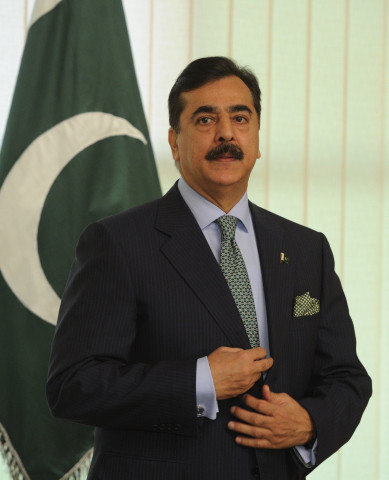Pakistan wants parity in ties with US: PM
Gilani informs Obama that Pakistan's foreign policy will be formulated by the Parliament.

As Pakistani lawmakers squabbled in Parliament over the future of its rollercoaster relationship with the United States, Prime Minister Yousaf Raza Gilani said his country wants to improve its relations with Washington – but on the basis of equality, mutual respect and benefit.
In an informal chat with US President Barack Obama on the fringes of a global nuclear security summit in the South Korea capital, the premier, however, said that Parliament would formulate the future course of his country’s foreign policy.
Pakistan-US relations touched their lowest ebb following a cross-border air raid by US troops on Pakistani border posts in the Mohmand tribal region on November 26, 2011 that killed two dozen troops.
In reaction, Pakistan plugged the key Nato supply routes, got the Shamsie airbase vacated and decided to reconfigure its relations with the US. Parliament is currently debating fresh terms of engagements proposed by an all-party, bicameral parliamentary committee.
Formal talks between Obama and Gilani would take place on Tuesday evening. And according to the White House in that meeting the US president would seek to put strained relations with Pakistan on a more even footing.
“There obviously has been a fairly turbulent period in US-Pakistan relations over the course of the last several months,” US Deputy National Security Adviser Ben Rhodes told reporters in Seoul on Monday. “We’ll want to address the state of the relationship.”
He said Obama would assure Gilani of “our continued interest in counter-terrorism cooperation” with Pakistan and stress shared interests in stabilising neighboring Afghanistan.
Rhodes said: “When we step back, we’ve continued to make significant progress against our core interest with regard to Pakistan, which is putting al Qaeda on a path to defeat. And that remains our focus.”
He said Obama would also discuss with Gilani plans for a transition to an Afghan security lead in Afghanistan and US support to an Afghan-led reconciliation process.
Rhodes was quick to dismiss Iranian President Mahmoud Ahmadinejad’s warning on Monday of growing instability in the West’s relations with Pakistan. “I’m not sure that he has any particular insight into Nato’s relationship with Pakistan,” he said.
“I think NATO has had a relationship since the beginning of the Afghan war, because we have a shared interest with Pakistan and there not being violent extremist groups within their border and instability in Afghanistan,” Rhodes said.
Apart from his meeting with Obama, Premier Gilani on Monday also had formal and informal meetings with other world leaders – Indonesian President Susilo Bambang Yudhoyono and Turkish Prime Minister Recap Tayyip Erdogan. In these meetings bilateral relations, with particular reference to trade ties, were discussed.
Indian Prime Minister Manmohan Singh also said ‘hello’ to his Pakistani counterpart when the two leaders saw each other prior to a dinner hosted for the summit participants, according to Press Trust of India.
“The prime minister said hello to Gilani,” PTI quoted Indian sources describing it as a ‘meet and greet’ encounter. Indian and Pakistani sides have said that no formal meeting has been scheduled between Singh and Gilani but at the same time they did not rule out a ‘pull aside’ meeting during the summit.
Published in The Express Tribune, March 27th, 2012.



















COMMENTS
Comments are moderated and generally will be posted if they are on-topic and not abusive.
For more information, please see our Comments FAQ